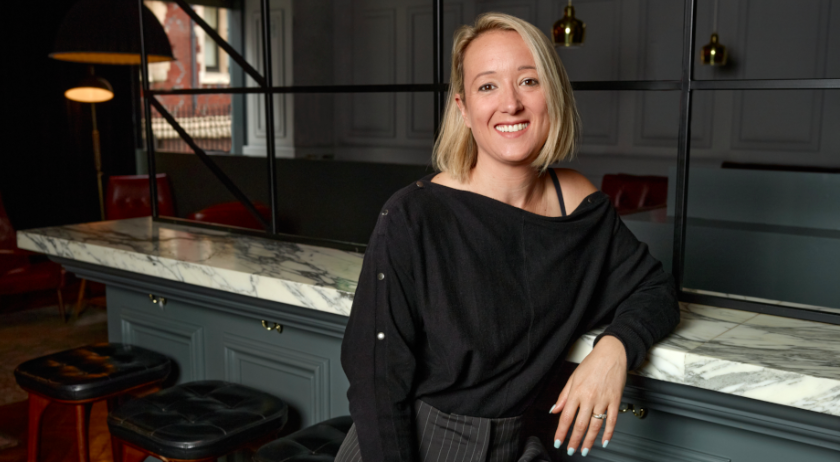LBB: The latest in GENIE’s series on the creative mind, Saatchi & Saatchi UK’s CCO talks about finding inspiration in her connections with others.

While the advertising industry may have a tendency to silo creativity, Franki Goodwin says that communities and connections are key to fostering creativity. By trying to own the word ‘creative’, perhaps we can get too obsessed over a job titles at the expense of empowering other people to use creativity.
Here, Franki shares her views about how creativity works.
Franki> A creative mind is a mind that can think laterally.
I think there’s a big part of creativity that is logical; it’s about getting from A to B by making the biggest leap, but doing so in the most rational way.
I love people who are living and breathing tangents – but when someone can pull those tangents together by finding an unexpected commonality, that, for me, is creativity at its best.
Franki> I believe that everybody is born creative, and that, along the way, we learn how to think. I was lucky; when I was at art school I wasn’t taught how to design logos or posters – I was taught how to think, and how to have conversations about the world.
At times our industry is at risk of putting this concept of creativity into a bit of a silo. Being creative doesn’t just mean being someone who understands advertising or fashion, just because these are mediums that are visual and sexy. Anyone who is trying to solve a problem has to be creative.
One of the biggest mistakes we make as creatives is trying to own that word. Because it doesn’t empower other people to take creativity and make it their own.
Franki> I can find inspiration in most things. In the past there was a physical act to getting inspired; I’d go into a library, for example, and open books and look at old work.
These days I have less time available to visit these physical spaces, so I have to draw inspiration from daily life; from walking down the street, or having conversations with the people I work with.
Franki> I think the modern world is changing what creativity looks like, but I don’t think it’s changing what creativity is.
One of my main creative principles is that we should be innovative, but with classical foundations. The classical structure of storytelling, for example, has existed for thousands of years for a reason.
Yes, we reinvent these structures and stories: the protagonists change, the platforms change, they may look different. But ultimately, the principles of creativity remain the same, which is to tell stories, inspire others, and find different ways to solve problems.
Franki> This sting from the Tokyo 2020 Olympics stands out as an amazing piece of craft:
Franki> Communities enable creativity to thrive; they offer ways to help you build your creative instincts, along with the diversity of thought, talent and opinion available to you.
What technology is very good at is building these communities – connecting like-minded people, and giving you shortcuts to finding them. This means we can now access a much wider pool of talent, giving us more options for problem solving, more lateral thinkers, more people who are going to help us take our ideas in different directions.
Add remote working to the equation, and we can now collaborate without being required to travel, enabling us to broaden our campaigns beyond borders. Thanks to technology we can get local insights from different places extremely quickly, meaning we can think globally and locally at the same time.
This article was originally published in Little Black Book on 20th September 2022